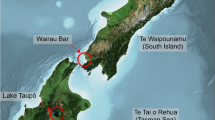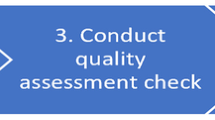Abstract
In situ solutions, participatory practices and the inclusion of community knowledge have become key ingredients in urban upgrading policies across the world. Knowledge, however, is not neutral, but value-laden, representing different and conflicting interests. Including community-based knowledge, therefore, is far from straightforward. To understand the politics of urban development interventions, a deeper conceptualisation of the relationship between knowledge and power is required. This article tries to contribute to this conceptualisation through an empirical analysis of informal settlement upgrading. Specifically, it interrogates the role of community knowledge in urban development through a study of two informal settlements in Cape Town. Findings from this qualitative research contradict the notion of a unified community whose ‘community knowledge’ can be engaged with. In both settlements, knowledge politics have resulted in tensions within the settlement, creating new interest groups and knowledge alliances, showing the complex interconnectedness of knowledge, power and mobilisation. As knowledge has been built, used, exchanged and contested to upgrade livelihoods, this knowledge has been standing in a mutually constitutive relationship with collective action.

Similar content being viewed by others
References
Appadurai, A. (2012). Why enumeration counts. Environment and Urbanization, 24(2), 639–641.
Auyero, J., & Swistun, D. (2008). The social production of toxic uncertainty. American Sociological Review, 73(3), 357–379.
Baud, I. S. A., & Post, J. (2002). "New partnerships in urban solid waste management and their contribution to sustainable development: experiences in Accra (Ghana) and Chennai (India)". In Baud, I. S. A. and J. Post (eds) Realigning actors in an urbanizing world. institutions and governance in an international perspective. Ashgate, Aldershot: 217-239.
Baud, I., K. Pfeffer, J. Sydenstricker and Scott, D. (2011) Developing participatory spatial knowledge models in metropolitan governance network for sustainable development. Chance2Sustain Working Paper, Bonn, EADI: 1-20.
Boulding, C., & Wampler, B. (2010). Voice, votes, and resources: evaluating the effect of participatory democracy on well-being. World Development, 38(1), 125–135.
Bruckmeier, K., & Tovey, H. (2008). Knowledge in sustainable rural development: from forms of knowledge to knowledge processes. Sociologia Ruralis, 48(3), 313–329.
Chambers, R. (1995). Poverty and livelihoods: whose reality counts? Environment and Urbanization, 7(1), 173–204.
Corburn, J. (2003). Bringing local knowledge into environmental decision making: improving urban planning for communities at risk. Journal of Planning Education and Research, 22(4), 420–433.
CORC (2010). "Europe household enumeration report. Gugulethu, Cape Town October 2010". Informal Settlements Network, Europe Community Leadership and Communicty Organisation Resource Centre joint report: 1-32.
Cornwall, A., & Coelho, V. S. P. (2007). Spaces for change? The politics of participation in new democratic arenas. New York: Zed Books Ltd.
Eppel, S. (2007). “They come here and take our houses!”: community conflicts in Langa in the context of the housing crisis in Cape Town: ‘Borners’ against ‘migrants’. Unpublished M. Phil. thesis in Development Studies, University of Cape Town.
Epstein, S. (1996). Impure science: aids, activism and the politics of knowledge. Berkeley: University of California Press.
Fischer, F. (2000). Citizens, experts and the environment: the politics of local knowledge. Durham: Duke University Press.
Flyvbjerg, B., & Richardson, T. (2002). Planning and Foucault: in search of the dark side of planning theory. In P. Allmendinger & M. Tewdwr-Jones (Eds.), Planning futures: new directions for planning theory (pp. 44–62). London: Routledge.
Gibbons, M., Limoges, C., Nowotny, H., & Al, E. (1994). The new production of knowledge, the dynamics of science and research in contemporary society. London: Sage.
Haraway, D. (1988). Situated knowledges: the science question in feminism and the privilege of partial perspective. Feminist Studies, 14(3), 575–599.
Hjorth, P. (2003). Knowledge development and management of urban poverty alleviation. Habitat International, 27(3), 381–392.
Hordijk, M., & Baud, I. (2006). The role of research and knowledge generation in collective action and urban governance: how can researchers act as catalyst? Habitat International, 30(3), 668–689.
Huchzermeyer, M. (2011). Cities with ‘slums’: from informal settlement eradication to a right to the city in Africa. Claremont.
Jacobs, F. (2013). The challenge of housing the poor: stakeholders, politics and knowledge use in decision-making processes for the N2 Gateway Housing Project in Cape Town. Unpublished master thesis, Master of International Development Studies, University of Amsterdam, 1–93.
Jordhus-Lier, D. C. (2015). Community resistance to megaprojects: The case of the N2 Gateway project in Joe Slovo informal settlement, Cape Town. Habitat International, 45(3), 169–176.
Leach, M., & Scoones, I. (2007). Mobilising citizens: social movements and the politics of knowledge. Brighton Institute of Development Studies, 1–34.
Massey, R. T. (2013). Competing rationalities and informal settlement upgrading in Cape Town, South Africa: a recipe for failure. Journal of Housing and the Built Environment, 28(4), 605–613.
Newton, C. (2009). The reverse side of the medal: about the 2010 FIFA World Cup and the beautification of the N2 in Cape Town. Urban Forum, 20(1), 93–108.
Patel, S. (2001). How can poor people benefit from research results? In: Utilization of research for development cooperation, linking knowledge production to development policy and practice. The Hague: RAWOO.
Patel, S., Baptist, C., & D’Cruz, C. (2012). Knowledge is power—informal communities assert their right to the city through SDI and community-led enumerations. Environment and Urbanization, 24(1), 13–26.
Piper, L. (2012). Development trustees, not rent-seeking deployees: the designed meaning of community upgrading in the Violence Through Urban Upgrading Project, Cape Town. African Centre for Citizenship and Democracy Working Paper, 11, 1–22.
Rakodi, C. (2003). Politics and performance: the implications of emerging governance arrangements for urban management approaches and information systems. Habitat International, 27(4), 523–547.
Scott, D. (2011). The role of a spatial ‘civic science’ in repositioning scientific expert knowledge in society: a case from South Africa. Chance2Sustain, Bonn, EADI: 1-2.
Scott, D., & Barnett, C. (2009). Something in the air: civic science and contentious environmental politics in post-apartheid South Africa. Geoforum, 40(3), 373–382.
Skuse, A., & Cousins, T. (2007). Spaces of resistance: informal settlement, communication and community organisation in a Cape Town township. Urban Studies, 44, 979–994.
Van Ewijk, E., & Baud, I. (2009). Partnership between Dutch municipalities and municipalities in countries of migration to the Netherlands; knowledge exchange and mutuality. Habitat International, 33(2), 218–226.
Watson, V. (2003). Conflicting rationalities: implications for planning theory and ethics. Planning Theory & Practice, 4(4), 395–407.
Winkler, T. (2013). At the coalface: community-university engagements and planning education. Journal of Planning Education and Research, 33(2), 215–227.
Author information
Authors and Affiliations
Corresponding author
Rights and permissions
About this article
Cite this article
Jacobs, F., Jordhus-Lier, D. & de Wet, P.T. The Politics of Knowledge: Knowledge Management in Informal Settlement Upgrading in Cape Town. Urban Forum 26, 425–441 (2015). https://doi.org/10.1007/s12132-015-9258-4
Published:
Issue Date:
DOI: https://doi.org/10.1007/s12132-015-9258-4




